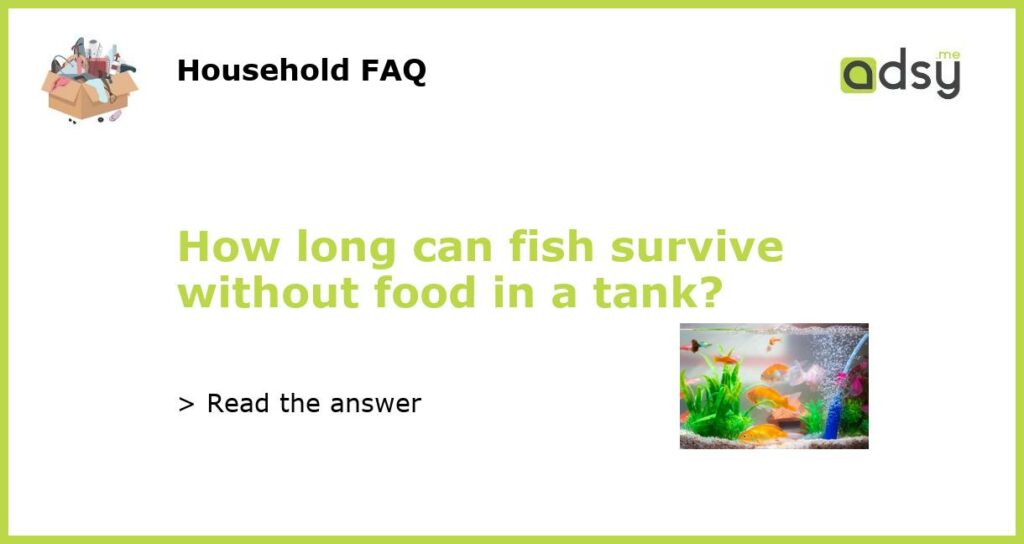Understanding How Fish Survive Without Food
Fish are incredibly resilient animals that can survive many harsh conditions. In the wild, they can go without food for extended periods, but what about fish in an aquarium? How long can they survive without food in a tank?
The Factors That Affect a Fish’s Ability to Survive Without Food
The amount of time that a fish can survive without food depends on several factors. One of the most significant factors is the species of fish. Some species can survive for weeks without food, while others can only survive for a few days.
The temperature of the water is another critical factor. Fish that are kept in cold water can survive longer without food than those that are kept in warm water. Water quality also plays a role. Fish that are kept in clean water with proper filtration can survive longer without food than those kept in dirty water.
How Long Can Fish Survive Without Food?
As a rule of thumb, most fish can survive for up to two weeks without food. However, this depends on the factors mentioned above. Some species of fish, such as Goldfish, can survive for as long as a month without food if the water temperature is low enough.
The Risks of Not Feeding Your Fish
While fish can survive without food for a period, it is not recommended to leave your fish for prolonged periods without food. If you plan to be away for an extended period, it is essential to make arrangements for someone to feed your fish. Failure to do so can lead to health problems and even death.
When fish don’t get enough food, their body starts to break down fat reserves to produce energy. As this process continues, the fish will become weaker and more vulnerable to infections and diseases. In the worst cases, the fish may die.
Fish can survive for some time without food, but owners should ensure that they feed their fish regularly to meet their nutritional needs. A healthy diet results in healthy and happy fish that can live for many years in good conditions. If you must leave your fish for an extended period, ensure that someone feeds them, or invest in an automatic fish feeder to keep them healthy and happy.






